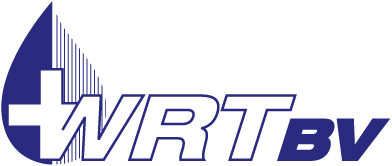additive descriptions
crude oil |
fuel oil |
gas oil diesel |
gasoline |
jet fuel |
biodiesel |
|---|

antioxidants
Antioxidants retard oxidation and reduce gum formation; they extend storage life and protect fuel systems by increasing resistance to oxidation.
In our programme we have antioxidants for gas oil, gasoline (components), jet fuel and biodiesel.
bactericides
Bactericides decrease the bacteria, yeast, fungi and algae that exist in water-contaminated fuels. The reduction of these microorganisms will safeguard the fuel from a number of quality issues regarding stability, corrosivity and colour degradation.
In our programme we have bactericides for gas oil, gasoline and biodiesel.
cetane number improvers
Higher-cetane fuels have shorter ignition delay periods than lower-cetane fuels. Fuels with a higher cetane number provide more time for the fuel combustion process to be completed. Hence, higher-speed diesels operate more effectively with higher-cetane number fuels. Cetane number is a measure of the ignition quality of diesel fuel, it is not a measure of fuel quality. Cetane improvers encourage early and uniform ignition of the fuel. They discourage premature combustion and an excessive rate of pressure increase in the combustion cycle.
We supply cetane improvers for gas oil, diesel and biodiesel.
CFPP improvers
The cold flow behaviour of diesel fuels usually depends on their molecular structure. As the fuel is cooled n-paraffins tend to form crystals, coalesce and settle out of the fuel. This causes blocking of the engine filters. The right type of CFPP improver can delay this phenomenon and make sure the wax crystals do not settle. Based on experience, WRT has developed a wide range of CFPP improvers.
Our additives improve the cold flow properties of diesel fuels like gas oil, (bio-)diesel and marine diesel oil.
cloud point improvers
Cloud improvers lower the temperature at which the first paraffin precipitation is observed.
Our additives improve the cloud point of gas oil, diesel and biodiesel.
conductivity improvers
These additives improve the conductivity of the fuel, i.e. permitting electrostatic build-up to safely dissipate without generating a spark.
We supply conductivity improvers for gas oil, diesel and (military) jet fuels.
corrosion inhibitors
Corrosion inhibitors decrease the corrosion rate of metals and alloys. The corrosion inhibitor forms a passivation layer, which prevents corrosive substances in the fuel from coming in contact with metal and repels water. The use of oxygenates in fuels has increased the demand for corrosion inhibitors.
We offer corrosion inhibitors for crude oil, gasoline (components) and jet fuel.
dehazers
Dehazers are surfactants which enhance the coalescence of small water droplets suspended within the fuel, which reduces settling time and increases water separation.
We supply dehazers to remove the haziness from gas oil and diesel fuels.
demulsifiers
Demulsifiers separate water, sediments and salt from crude and fuel oil.
dyes
WRT can supply red, blue and orange dyes.
Our dyes can be used to dye gas oil, diesel and gasoline.
icing inhibitors
Jet fuel can contain a small amount of dissolved water that does not appear in droplet form. As an aircraft gains altitude, the temperature drops and the jet fuel’s capacity to hold water is diminished. Dissolved water can separate out and could become a serious problem if it freezes in fuel lines or filters, blocking the flow of fuel and shutting down an engine.
Icing inhibitors prevent the formation of ice in fuel lines.
H2S scavengers
H2S can naturally occur in crude oil and can be generated in refinery processes. We have a wide range of different H2S scavenging technologies to treat both crude oil and refined products.
Our H2S scavengers remove the very toxic and pungent H2S from all oil streams.
lubricity improvers
Low-sulphur diesel fuels have become an environmental necessity due to concerns over emissions of diesel engines. However, the reduction in the sulphur and aromatics content of diesel fuels has resulted in lubricity problems. Low-sulphur diesel fuels have been found to increase the wear and tear of all kinds of equipment. Lubricity improvers are able to restore the lubricity to the required performance level, by creating a fine layer over a metal surface, so that direct metal-to-metal contact is avoided.
We supply lubricity improvers to increase the lubricity of gas oil and diesel.
markers
Our markers can be used in gas oil, diesel and gasoline.
mercaptan scavengers
Mercaptans can cause many problems ranging from malodours to metal corrosion. Because of the volatility of mercaptans, they tend to evolve into vapour spaces, where their offensive odours create problems in and around storage areas and throughout pipelines and shipping systems used for transportation.
Our additives remove mercaptans from all oil streams.
pour point depressants
Pour point depressants inhibit the deposition of paraffin wax in crude and fuel oils to enable the fuel to flow at lower temperatures.
Our pour point depressants improve the cold-flow properties of crude oil and fuel oil.
RON/MON Boosters
Octane measures the fuel’s ability to resist knock which is caused by self-ignition of the fuel. Our wide range of RON/MON boosters improve the fuel’s resistance to self-ignition.
We supply RON/MON boosters to improve the octane number of gasoline (components).
WASA
Wax Anti Settling Additives prevent the crystals from clogging together and settle at the bottom of the fuel tank.
tank cleaners
To find out more about our tank cleaners, please contact us.

